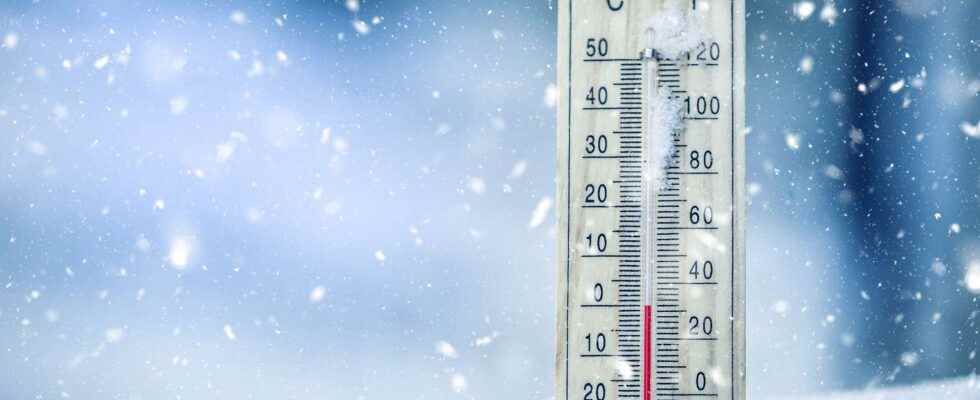An early cold snap is currently affecting France. With the descent of a mass of polar air over the country, some media hastened to qualify this winter episode as “freezing cold”, “polar cold” or even a “cold wave”. And yet, none of this in anticipation! A mistake that finds its origin in the exact meaning of the word “polar”. Explanations.
You will also be interested
[EN VIDÉO] [En attente] Should you eat fat when it’s cold? In winter, the body must make more efforts to fight against the cold. But while it may seem logical to eat more fat, this statement does not really hold up with our current lifestyles.
A air mass is a volume air characterized by three parameters: its humidity, its origin, and its stability. It can therefore be dry or wet, of tropical, polar, arctic or equatorial origin, but also stable or unstable. These air masses can then move and affect geographic areas different from their area of formation.
This flow of cold air will come directly from Greenland: it will therefore be of maritime polar origin (flow from North to North-West). 10/17 pic.twitter.com/2aXkyyL96Y
– Florentin Cayrouse (@ FloC36) November 22, 2021
A polar air mass?
With a northwesterly flow these days, polar air from Greenland and Iceland descends on France, hence the term “polar cold” over the country, which is simply related to the origin of this air pocket. But this cold is not only polar, it is also humid, or more exactly maritime. As it descends from the poles, this cold passes over the Atlantic Ocean and becomes humid. It is therefore a mass of maritime polar air, a characteristic that makes all the difference: passing over the ocean, this air heats up. In this configuration, the cold which arrives in France is very present, but its intensity is moderate. No wave neither cold nor freezing cold in anticipation therefore, unlike certain sensational press titles.
The term “polar” therefore does not mean that France will be confronted this week with freezing and lasting cold, it in fact just designates its origin.
Winter weather, but above all unstable in anticipation
This maritime polar air will have no remarkable consequences in matter temperatures: they will be just 3 ° C below the seasonal averages, with a wind which will accentuate the cold feeling. The temperatures will be worthy of a full winter, similar to those we can have at the end of December-beginning of January. The feeling will be clearly wintry the next few days, but without extreme. Because of clouds and wind, morning frosts will be infrequent and weak (0 to 5 ° C on average in the morning in most large cities). Despite the polar origin of the air, we will be very far from the freezing temperatures of -5 to -10 ° C that France regularly faces in winter.
The feeling will be clearly wintry the next few days, but without extreme
On the other hand, this north-westerly flow is well known for giving rise to unstable weather: abundant snow on the massifs from 600-700 meters above sea level, sleet in the plain (as in early spring) and wind. Generalized bad weather, with a very unpleasant feeling, which will only delight mountain resorts with a lack of snow.
No cold snap in anticipation for the moment
The expression ” cold wave Is a term often confused with a simple “cold snap” on the country. The cold snap is associated with specific characteristics, officially defined by Météo-France: ” A cold snap is a lasting and extended episode of cold (at least 3 days). For an episode to be identified on a national scale, the national average temperature must drop at least one day below a certain threshold (-2 ° C). Cold spells are also characterized at the scale of a region when the episode lasts at least two days and the temperatures reach values well below the seasonal norms for the region concerned. “
The threshold necessary for a cold snap will not be reached in France in the coming days and you should know that a cold snap does not occur with maritime polar air, but with continental polar air, coming from the east. / northeast, that the meteorologists call it “Moscow-Paris”.
No freezing cold, no cold snap the next few days, but simply the arrival of a winter cold, temporarily and very classic for this time of year. A phenomenon that is not exceptional and occurs regularly every fall, even if global warming in recent years has often been responsible for rather mild November and December over the past decade.
Interested in what you just read?
.
fs11
